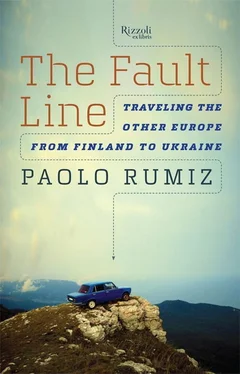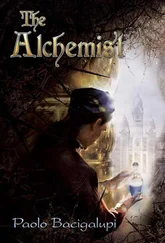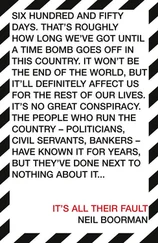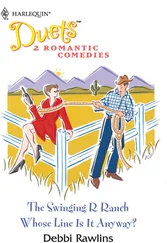But a lot of things I have received as presents are not here. They have been consumed along the way. I’m missing the smoked fish of Captain Nikolai with which I crossed over into Russia. I’m missing the reindeer meat I got from the Laplanders, the pancakes cooked by Alya, the sweet queen of the blini in Petrozavodsk. And then the goat’s milk from Osipa in the Carpathians, and the awesome distillate of barley (served with fish, butter, and brown bread) offered by Rita and Volodya, the two Russian Lithuanians in their house that was once a synagogue. Not to mention the countless piping-hot cups of chai (tea) poured as a sign of friendship by the world’s most hospitable people. The time has come for drawing up the balance sheets.
I received much more than I gave. I encountered a few brigands, but the great majority of those I met along the way were good people. Many of them, especially the poorest, were ready to offer the foreigner a roof to sleep under or to accompany him for a part of the journey. But of all these things, of perhaps the most precious things I received, nothing remains. Except for shreds of notes dispersed throughout seven notebooks. I wonder if I’ll really be able to render the human density of this journey.
It’s raining, night returns, the Caledonia sails into a curtain of clouds hovering at the water’s surface. Alone on the bulwarks, I squeeze all the negritude I can from the Black Sea. Coal, oil, cast iron, ink, squid juice. Thousands of years ago, the Black Sea was a lake, and the Bosporus, a mountain gorge between Anatolia and the Balkans. Then, more than seven thousand years ago, a tumultuous spillover occurred. At the end of the Ice Age, the levels of the seas grew higher, and the Mediterranean overflowed the thin barrier of the Bosporus. The gorge became a huge cascade of fifty million cubic meters of water every day, and the new sea swelled by a meter every week, forcing the shoreline populations to escape toward the Danube, the Caucasus, and the Middle East. First it was thought that the Biblical Flood was an exceptional spate of the Tigris and Euphrates, but today the overflow of the Mediterranean seems to be the winning hypothesis. Surveys of the bottom of the Black Sea confirm it. Underneath, regular strata of lacustrine fossils; above—with a clear gap datable to about 5000 BCE—disordered strata of seashells, stirred by an enormous ladle.
As the Caledonia sails along on the biblical waters of the flood, one of the two Moldovian models is cuddled up on the stern, wrapped in a colorful shawl. The captain walks out onto the bulwarks to smoke. A young Muscovite biker tells me the story of General Alexander Samsonov, defeated by General Erich Ludendorff at the Battle of Tannenberg, in Poland, during the First World War. Before surrendering, he tore the epaulets off his uniform in anger, and now those very same epaulets have been found by chance in a bush, ninety years later, by a farmer.
The Bosporus is getting closer. I’ve never arrived in Istanbul from this side, and it is the right side, because Hagia Sophia is the perfect head of the line of a Byzantine world that from Constantinople—the Second Rome—has reached Kiev, Moscow, and Saint Petersburg, going up as far as Murmansk, to the edge of the Arctic Ocean. The port where this Slavic and Orthodox journey through Europe began.
A milk-white dawn opens up, and I don’t notice right away that the Caledonia is sailing between mountains. Gray mountains, suspended over the water. Not until phantasms of immense ships glide by and slip away into the distance do I discover, as my heart skips a beat, that we’re in the channel between Asia and Europe. Lighthouses, villages shining with rainwater. In an armchair, a rotund blond woman with her eyes closed is nursing her baby. Maybe she’s asleep, exhausted. The little guy follows me with his eyes, never losing his concentration on that act that guarantees his survival.
My journey along the new Iron Curtain is over. I went looking for a real frontier, and I found it. At times it coincided with national borders; at other times, not. In Ukraine I had the impression that it was dangerously threatening to split the country in two, and now in Istanbul I have the impression that this white line runs right through me and is cutting through my soul like barbed wire.
I wonder what will become of the old Europe, of its martyred peasant and Jewish heart swept away by too many wars. The train for Belgrade is waiting for me at the Sirkeci Station. I’ve got very little time to close the circle.
Only the Turk and the Circassian seem not to pay any heed to the clock, not even to the calendar. They kiss, oblivious to the city, the people, the rain.
Praise for The Fault Line
“There’s an unlikely poetic beauty to his flowery, indulgent prose, in which every moment takes on transcendent meaning… He lovingly describes his escapades and experiences, conjuring up places few tourists ever visit, exposing the dichotomy between the modernity of the EU and the time-lost ways of the old world, and illuminating a much-overlooked region of the world in a thoroughly fascinating manner…. There’s no denying the allure and appeal of his European odyssey.”
—Publishers Weekly
“A richly detailed journey into Europe’s dark past and vulnerable present.”
—Kirkus Reviews
“Rumiz reveals his strength in his travels, in the journey that slowly builds up as each and every page is turned…. It would be difficult to find another writer who is as well-equipped to adapt and enter into the world that he is passing through with such simplicity.”
—Il Mattino newspaper
“[B]eautiful writing suffused with shadows and sun, bathed in love and melancholia, steeped in delicate and powerful fragrances.”
—Le Figaro newspaper
First published in hardcover in the United States of America in 2015
by Rizzoli Ex Libris, an imprint of
Rizzoli International Publications, Inc.
300 Park Avenue South
New York, NY 10010
www.rizzoliusa.com
Originally published in Italy as Trans Europa Express
Copyright © 2012 by Paolo Rumiz
Published by arrangement with Marco Vigevani & Associati Agenzia Letteraria
Translation copyright © 2015 Gregory Conti
This ebook edition © 2015 Paolo Rumiz
All rights reserved. No part of this publication may be reproduced, stored in a retrieval system, or transmitted in any form or by any means, electronic, mechanical, photocopying, recording, or otherwise, without prior consent of the publishers.
ISBN-13: 978-0-8478-4545-3
v3.1
Karadeniz is the Turkish name for the Black Sea; Chorne More, the Ukrainian name; chernozyom means “black earth” in Russian; ochi chorniye means “black eyes” in Ukrainian, but is often translated “dark eyes” or “brown eyes” so it doesn’t sound like the result of a fistfight.
A verst is an ancient Russian measure of length, equivalent to 0.66 miles.
A dazibao is a large-character, handwritten Chinese wall poster, frequently associated with the Cultural Revolution of the 1960s.
The Schengen Agreement, first signed by five countries in 1985 and later adopted by the European Union, allows for residents of its now twenty-eight member countries to cross borders freely, away from fixed checkpoints.
The original expression is “non guadagnerà un becco di un quattrino.” A quattrino was a coin minted in the Grand Duchy of Tuscany in the 1300s. As the name indicates, its value was four denari or four cents. Becco , “beak,” is the term used in numismatics to describe a pointed imperfection that sticks out on the circumference of the coin. The expression un becco di un quattrino —“the beak of a quattrine”—is roughly the equivalent of a “red cent,” referring to a copper penny.
Читать дальше












